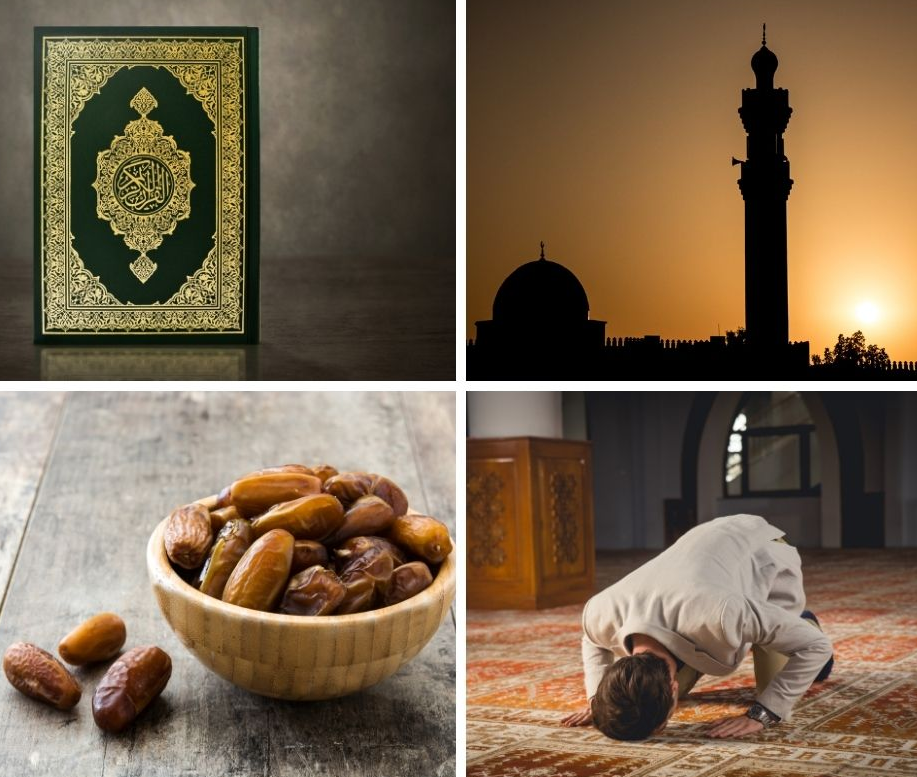Muslims keep fasting in the holy month of Ramadan. This month is full with the blessings of Allah. Muslims impatiently and excitedly wait for this month to gain more benefits. Ramadan fasting is a fundamental pillar of Islam which fostering discipline, empathy and strengthening connection with Allah. It is not just about avoiding drink and food, also include avoid negative thoughts, back biting, conflicts and lying. Ramadan gives a special opportunity for spiritual renewal, self-purification and avoiding from sins. Ramadan becomes more than hunger, it serve as a reminder of patience and gratitude. In peaceful time of reflection, believers find calm in faith, in prayers and in most blessed last ten nights and sympathy and love for others.
The Significance of Ramadan
Fasting during Ramadan is the fourth pillar of Islam. Muslims avoid from eating, drinking and other body demands from dawn till sunset. Although it may seem difficult, there are several important spiritual advantages of this. Self-control, patience and thankfulness are developed through fasting. Muslims experience hunger and thirst as a reminder of hardships face by those who are less fortunate. By doing this practice, one’s compassion and relationship with Allah are strengthened. Ramadan is a time for spiritual renewal and physical development, with nights devoted to Quranic recitation and additional prayers. Giving up food is only one aspect, other aspects include avoiding from sinful behaviour and concentrating on worship. It enriches the follower’s practice of Islam and supports the principles of the five pillars.
The Deeper Purpose of Fasting
Swam or the Fast is the fundamental practice of Ramadan. But avoiding food or drink is the only one aspects of fasting, it is about self-control over desires, purification of soul and body, learning tolerance and concentrating on Allah’s worship. During fasting, Muslims can feel the struggle and hardships of thirst and hunger of those people who have not enough resources to eat and drink. They feel empathy for those poor and needy people and are reminded to be thankful for what they have. Muslims strengthen their connection with Allah and change their priorities from worldly distraction to spiritual, by exercising this self-control. Fasting is act as a strong tool for reflection and spiritual renewal because it maintains a balance between worship and discipline.
Reflection during Ramadan
Ramadan gives an opportunity for reflection, which is one of its greatest advantages. It is the best time when Muslims take time to look on their actions, habits and intention. They spend most of their time in remembrance of Allah by Dhikr, offering prayers with khushu and perform other voluntary actions like sadaqah, nafl to gain more rewards. Muslims are urged to examine the blessings of Allah and appreciate them in their lives. It also gives you an opportunity to seek forgiveness from others for all your mistakes, removes burdens, and gives a new start to your relationships. It also about to concentrate on your future, make plan for upcoming life and setting goals how to strengthen your faith and character. Therefore, Ramadan is not about just physical fast, it serves as a both spiritual and physical pause button, to rethink about your lives and behaviours and adjust your lives according to Islamic teachings.
Spiritual Renewal through Worship
There is much more to worship throughout the Ramadan than just mandatory five times prayer. Muslims spend more time in mosque, offer Taraweeh prayer at night and recite Quran more. These actions develop a deep sense of closeness to the Allah and renewal of faith. Spiritual renewal is a comprehensive process including spiritual purification, strong connection with Allah and improved self-discipline. Believers avoid bad deeds and words in order to develop characteristics like tolerance, kindness and self-control. Sadaqah or charity is also a major element of prayer in Ramadan. Acts of charity brings more rewards. It gives an opportunity to cleanse the wealth and develop sympathy and care for others. Ramadan is a time that offers complete spiritual renewal due to the cycle of fasting, worship and reflection, which calms the heart and gives it a new sense of direction.
Community Spirit in Ramadan
Ramadan is about community, not just a personal growth. Family gathers at one place to break the fast at sunset. This practice strengthen the connections and promotes a sense of togetherness. Mosques are filled with Muslims to offer shared prayers side-by-side and for other events that foster unity and spiritual growth. By avoiding eat and drink, Muslims can experience the struggle and difficulties of those people who are homeless and have not enough resources to meet their basic needs like eating and drinking. Muslims adheres to the shared prayer and fasting routine. Zakat and Sadaqah is also a source of worship. Muslims donates to poor and needy people to removes the gap between them. By donating, they make sure that poor and less fortunate experience the same joy and blessings of the holy month of Ramadan. They can also become the part of happiness. This develops a sense of empathy and brotherhood for the homeless and less fortunate. The connections of faith are boosted by this sense of brotherhood and sisterhood, which shows that Islam is more about caring others, not just about personal development.
Carrying Lessons beyond Ramadan
The real test comes in life after the Ramadan. Ramadan serve as a training ground to cultivate an everlasting strong relationship with Allah And transforms these teachings into a sustainable way of life rather than being a month-long commitment. The habits like tolerance, self-control, devotion and discipline built during this month are meant to carry out into everyday life. Nightly prayers strengthen the relationship with Allah. Do not end the routines that establishing during Ramadan like offering prayers in the mosque and reciting the Quran daily. Try to avoid bad language and sins which weaken your Imaan. The benefits of Ramadan last long if people continue to follow the Ramadan routine like charity, exercise tolerance, reading a few verse of Quran with translation daily and waking up for Tahajud.
